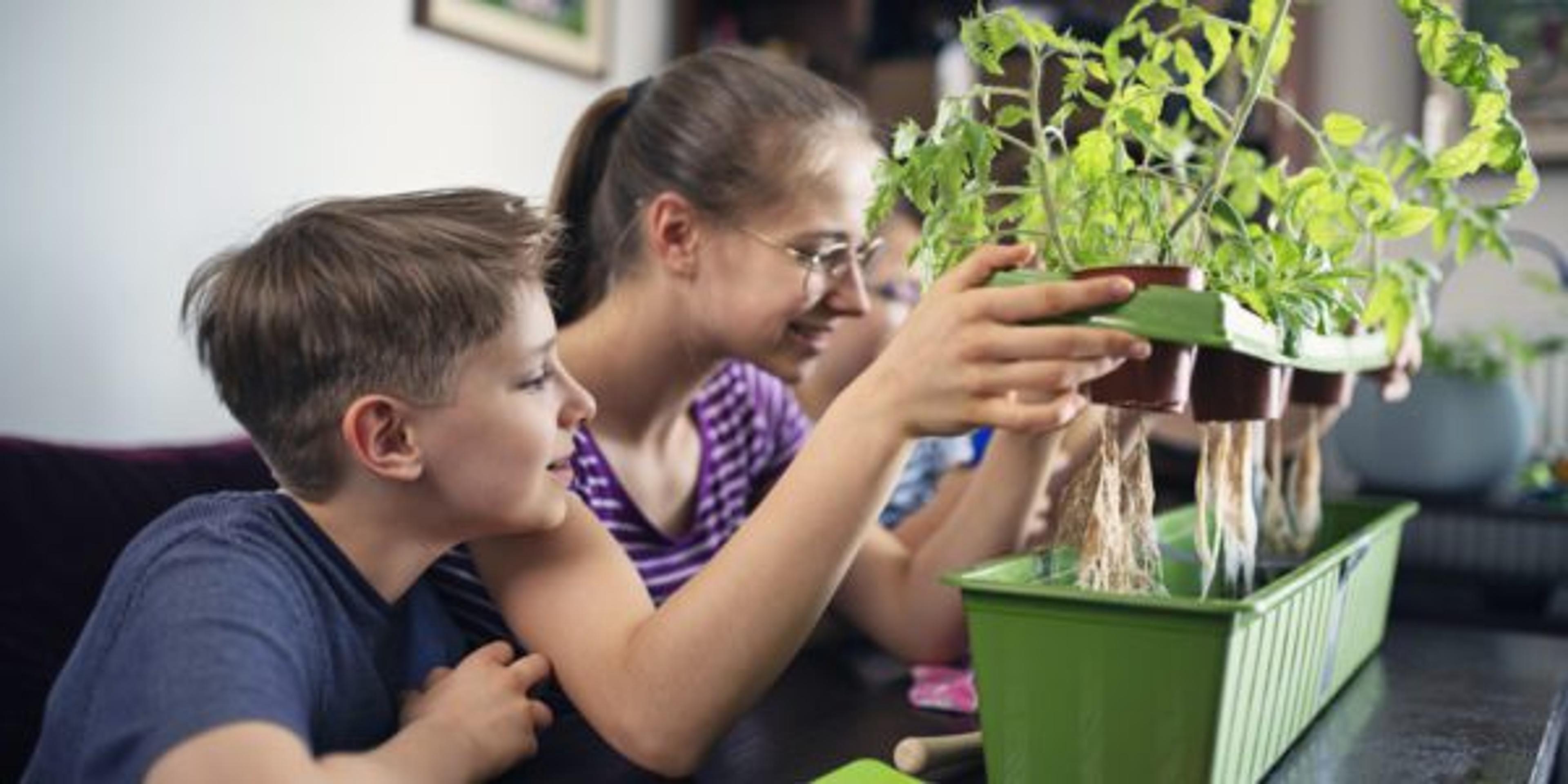Reasons to Start a Hydroponic Garden
Shandra Martinez
| 3 min read

There’s something undeniably wholesome, creative and even hopeful about tending to a garden. Whether you’re raising seedlings from seeds or creating neat rows of plants you’ve purchased from a greenhouse, most people equate gardening with digging in the dirt. Making a space for each seed and plant typically involves pushing soil aside, then covering up the seed or plant roots with another layer of dirt. But what if you took the soil out of the growing equation? Hydroponic gardening does just that, and there are lots of good reasons to consider growing fruits and vegetables hydroponically.
What is hydroponic gardening? Hydroponics is a way to grow fruits, vegetables and other plants without using soil. Instead of growing in dirt, plants are grown with their roots submerged in a solution of water, minerals and sometimes other additives, like fertilizer. The focus is on the basics: water, nutrients and sunshine. Commercial growers and specialty fruit and vegetable producers have been using hydroponic systems for years, but this method is also increasing in popularity among home gardeners who like the efficiency of growing plants this way.
Pros of hydroponics. While growing garden plants hydroponically looks different from the traditional planting and harvesting, there’s a lot to like about this water-based method. Here are some of the benefits, according to indoorgardening.com.
- It can be inexpensive. Some hydroponic growing systems are very high-tech, but they don’t have to be. With very few supplies, you can set up your own indoor or outdoor hydroponic system.
- A lot less mess. There’s no getting around it: traditional gardening is messy. It leaves dirt on your hands, on your clothes and under your fingernails. Water-based hydroponic gardening leaves the dirt behind.
- Increased harvest. Growing hydroponically is a more intensive form of gardening, meaning you can grow more food in a smaller space. It’s great for people who don’t have a big space for gardening, or for those who simply want to grow more food.
What vegetables are best grown hydroponically? With the right equipment, pretty much any vegetables and lots of fruits can be grown hydroponically. But just like with traditional gardening, some items are easier to grow. Here are several that fall into that category:
- Tomatoes
- Kale
- Cucumbers
- Lettuce
- Microgreens
- Chives
- Basil
- Strawberries
- Beans
- Peppers
Different types of hydroponic systems. If you want to grow an indoor garden hydroponically, there are lots of garden stores or online retail sites stocked with supplies and advice as this gardening method continues to grow in popularity. Some gardeners like to use vertical towers or stacked planter-style containers. Others use water-filled trays. Hydroponic growing kits, complete with lights, can be purchased online. It helps to know the basics of the different hydroponic systems that can be used, to understand which one best suits your gardening style.
- Water culture: Plant roots are submerged in water, which often has nutrients added. The water is usually aerated with a bubbler system.
- Aeroponic: Plant roots are exposed to the air, then sprayed or misted with nutrient-rich water.
- Wicking: Plants sit in a medium like vermiculite and a wick or long piece of fabric draws water from a lower reservoir up to the plant.
- Ebb and flow: This kind of system is usually on a timer. Plant roots are flooded with water, then left to drip dry in intervals.
Related:
Photo credit: Getty Images





